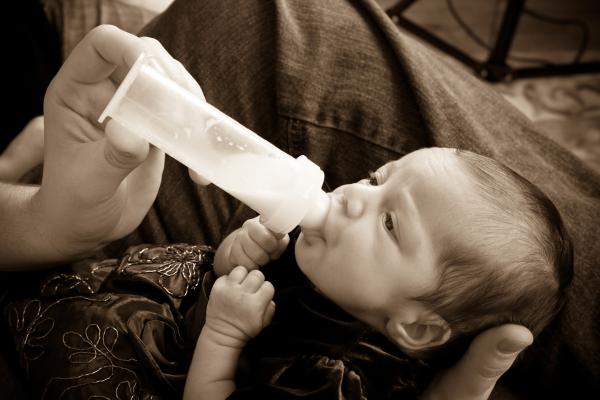Nothing irritates me more than using a disaster like a hurricane Harvey to propel a political agenda. Be informative, wonderful. Be supportive, even better. Be encouraging, yes! Add ‘at all costs’ directives to messaging that serves to stress people enduring ever mounting stress, trauma, fear, worry under extreme circumstances—well, that’s just not ok.
This misguided narrative is at the core of announcements the La Leche breastfeeding group is presently releasing, among them:

Breastfeeding may or may not be the right thing for a family experiencing this unprecedented blow to personal— physical and emotional — health, family well-being, livelihoods, relationship networks, normalcy, sense of safety and security etc. (2) One does not have to go very far to appreciate the hourly, let alone sometimes minute-to-minute, struggles Americans are enduring along Harvey’s destructive path. Every television station and news outlet is conveying personal hardships that range from days of no food or water hoping in the dark of night—while sitting atop the roof of a submerged home—to be rescued, separated from loved ones whose status is unknown due to limited communication or being alone in a shelter overwhelmed, uncertain about the future.
There are fortunately more than one approach to feeding infants in these and other traumatic scenarios. The messages to victims of this storm should reflect that. Such is the wondrous state of modern advances. Stuck on a roof, too precarious to venture out, unsure of being rescued and without access to formula, yes, breastfeeding can be a blessing. But a mother situated in a secure shelter while taking care of chronically ill family members, possibly injured in the events of the week, and possibly having lost everything, known safe formula is an acceptable choice as well.
Circumstances matter. These major catastrophes are dynamic, evolving situations that require the best decisions of the moment—a fluid process. The mental health and physical well-being of a mother matters to the short- and long-term safety of her child. Moms can be displaced from their infants or they can be responsible for multiple children. Some might require special needs. Some might suffer chronic disease. Good choices exist today that can nurture all involved.
If breastfeeding calms them and is their goal, then support it. By all means, do what you can - when advisable-to help them achieve it (and safely).
But, just because breastfeeding can reduce one woman’s stress level doesn’t mean it will for another woman. For some, it may escalate an already intense worry. Where one woman might be okay breastfeeding amidst thousands of displaced Texans, another might be overwhelmed by the notion. Supporting women and families is about facilitating their choices, not supplanting their autonomy by enabling your own. Coercive undertones are missing the point.
What is the point? A healthy mother, child and family. These relationships are best when synergized, not antagonized. Weathering these extreme conditions requires stamina, coping skills and resilience. It is a marathon in the immediate and protracted near term, not a sprint.
For those desiring support for breastfeeding, it should be readily provided and championed. Facilitated. Pressure to breastfeed should play no role.
The message requires nuance. Yes, breastfeeding is nature’s built-in mechanism that is a great alternative to risking your life to go through flooded waters or treacherous conditions to attempt to go to the store. It can be lifesaving. So can ready-made formula in the convention center. Formula can come ready-made or in powder form requiring water for reconstitution to liquid. Contaminated water is challenging in these types of disasters, but in the United States and with the Red Cross and other organizations involved this issue is less likely to occur.
It all depends on your unique circumstances.
There is no dispute that breastfeeding is the gold standard. But, safe formula in eligible infants is more than sufficient in these types of disasters, as well as more regular times. And, an unlimited potential in life for that child exists with either mode. They will not be shortchanged in the grand scheme.
There are situations where mom is profoundly dehydrated and impaired herself. Provide help, not exacerbation of suffering. Her optimal health creates the best quality milk in the first place. Help might mean supplementing some feeds with formula. It can also mean aiding her ability to breastfeed. These instances aren’t binary. A mentally and physically healthy mother best contributes to a healthy baby, more so than the benefits of breastmilk in these and similar situations.
Exclusive breastfeeding at all costs—in particular in “exceptionally difficult circumstances”-- is a failing policy as evidenced by not one country meeting the so-called “breastfeeding standards” set forth by the World Health Organization (WHO) and United Nations Children’s Fund (UNICEF). This idealized metric is based on value-laden ideology, not clinical status and medical realities.
When people are in crisis, there is no place for guilting or further taxing them about their infant’s nutrition. A little more compassion in the message might go a long way in assuaging fears and genuinely soothing suffering.
In the end, let this aphorism—altered with creative license-- expose a general truth: “Perfect” should not be the enemy of the good.
Note(s):
(1) These articles will further place the policy issues into context: WHO, UNICEF Breastfeeding Policy Political Move, Not Necessarily Health One and ‘At All Costs’ Health Campaigns Undermine Women.
(2) The American Academy of Pediatrics provides a bit more balanced resource of what advantages and disadvantages exist in infant feeding during a disaster, check here. The local public health officials, medical providers and emergency services will also best be able to direct what is safe versus unsafe as they are up-to-date on chemical spills, poor refrigeration and other impediments or risks. Precautions do need to be taken with feeding in such conditions to keep everyone safe.




